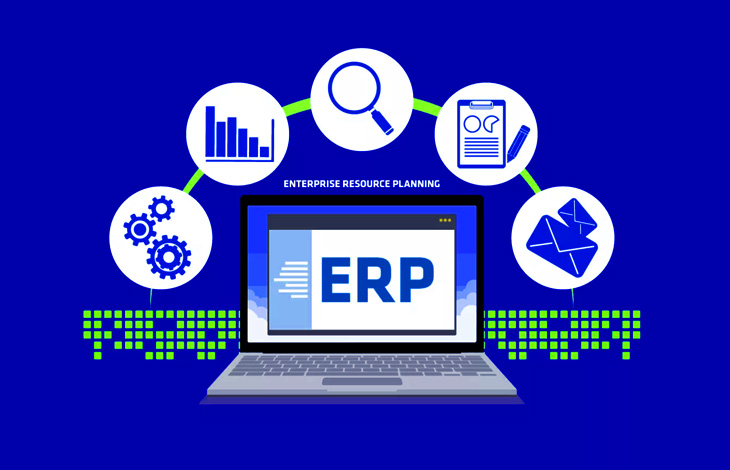In today’s data-driven world, harnessing the potential of Enterprise Resource Planning (ERP) data is paramount for businesses striving to thrive in competitive markets. Enterprise Resource Planning systems integrate various business processes, generating a wealth of data that, when effectively utilized, can revolutionize decision-making, enhance efficiency, and drive innovation. This article delves deep into the realm of ERP data, exploring its significance, potential applications, and best practices for leveraging it effectively.
Understanding ERP Data
What is Enterprise Resource Planning Data?
ERP data refers to the vast pool of information generated by Enterprise Resource Planning systems. These systems streamline core business functions such as finance, HR, manufacturing, and supply chain management, consolidating data into a centralized repository.
Significance of Enterprise Resource Planning Data
ERP data serves as a treasure trove of insights for organizations, offering a holistic view of their operations. By analyzing ERP data, businesses can identify trends, anticipate customer needs, optimize processes, and make informed strategic decisions.
Utilizing Enterprise Resource Planning Data for Business Growth
Optimizing Operations
ERP data enables organizations to streamline operations by identifying inefficiencies, reducing redundancies, and enhancing resource allocation. Analyzing data from different modules allows businesses to optimize processes and improve overall efficiency.
Driving Strategic Decision-Making
Informed decision-making is crucial for sustainable growth. ERP data provides valuable insights that empower leaders to make data-driven decisions, whether it’s expanding into new markets, launching innovative products, or optimizing pricing strategies.
Enhancing Customer Experience
Businesses may better understand customer behavior, preferences, and purchasing trends by utilizing ERP data. This enables personalized marketing initiatives, targeted promotions, and superior customer service, ultimately enhancing the overall customer experience.
Best Practices for Harnessing Enterprise Resource Planning Data
Data Quality Assurance
Maintaining data accuracy, consistency, and integrity is imperative for deriving meaningful insights from Enterprise Resource Planning systems. Implement robust data quality assurance measures to ensure data reliability and validity.
Advanced Analytics
Deploy advanced analytics tools such as predictive modeling, data mining, and machine learning to extract actionable insights from ERP data. These tools uncover hidden patterns, forecast future trends, and identify potential opportunities or risks.
Cross-Functional Collaboration
Foster collaboration between departments to maximize the value of Enterprise Resource Planning data. Encourage cross-functional teams to share insights, align strategies, and leverage data-driven approaches to achieve common business objectives.
Challenges and Considerations
Data Security and Privacy
Protecting sensitive Enterprise Resource Planning data from cyber threats and unauthorized access is paramount. Implement robust security protocols, encryption mechanisms, and access controls to safeguard data integrity and confidentiality.
Integration Complexity
Integrating disparate systems and data sources within an Enterprise Resource Planning ecosystem can be complex. Invest in scalable integration solutions and leverage APIs to seamlessly connect Enterprise Resource Planning systems with third-party applications and data sources.
Change Management
Adopting data-driven practices requires a cultural shift within organizations. Invest in change management initiatives to foster a data-centric culture, empower employees with data literacy skills, and drive organizational buy-in for data-driven decision-making.
FAQs (Frequently Asked Questions)
How can Enterprise Resource Planning data benefit small businesses?
ERP data empowers small businesses with actionable insights to optimize operations, enhance efficiency, and drive growth. By leveraging ERP data, small businesses can make informed decisions, streamline processes, and gain a competitive edge in the market.
Is Enterprise Resource Planning data analysis limited to large enterprises?
No, ERP data analysis is beneficial for businesses of all sizes. Small and medium-sized enterprises (SMEs) can leverage ERP data to improve agility, scalability, and decision-making capabilities, enabling them to compete effectively in their respective industries.
What are the key challenges associated with Enterprise Resource Planning data analytics?
Challenges such as data silos, integration complexity, and data quality issues are common in ERP data analytics initiatives. Addressing these challenges requires a combination of technological solutions, organizational alignment, and data governance frameworks.
How can businesses ensure data security and compliance when analyzing ERP data?
Implementing robust security measures, encryption protocols, and access controls is essential for safeguarding ERP data. Additionally, organizations must adhere to regulatory requirements such as GDPR, HIPAA, or industry-specific compliance standards to ensure data security and compliance.
What role does Enterprise Resource Planning data play in digital transformation initiatives?
ERP data serves as a cornerstone of digital transformation initiatives, enabling organizations to modernize processes, improve agility, and enhance customer experiences. By harnessing ERP data effectively, businesses can accelerate their digital transformation journey and stay ahead of the curve.
How can businesses measure the ROI of Enterprise Resource Planning data analytics initiatives?
Measuring the ROI of Enterprise Resource Planning data analytics requires defining clear objectives, KPIs (Key Performance Indicators), and success metrics aligned with business goals. Organizations can track metrics such as cost savings, revenue growth, process efficiencies, and customer satisfaction to quantify the impact of Enterprise Resource Planning data analytics initiatives.
Closing Thoughts
ERP data represents a valuable asset for businesses seeking to drive growth, innovation, and competitive advantage. By harnessing the power of ERP data through advanced analytics, strategic decision-making, and cross-functional collaboration, organizations can unlock new opportunities, mitigate risks, and thrive in today’s dynamic business landscape.



